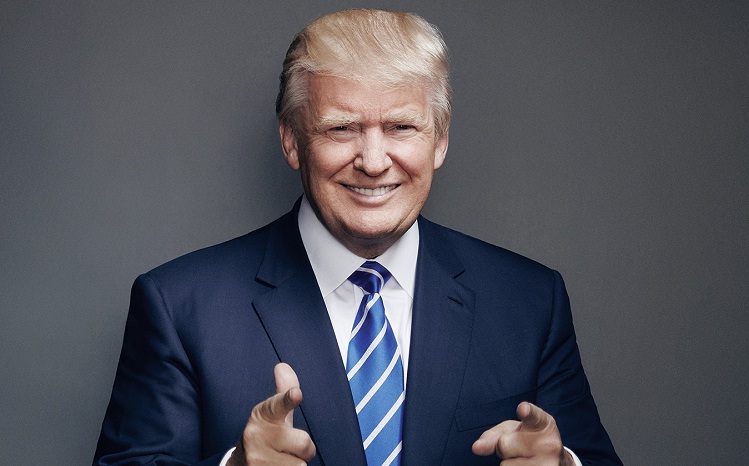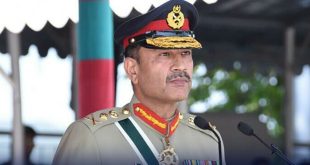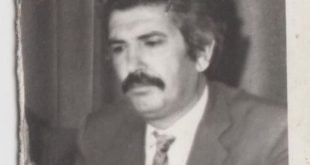By Sujeet Sarkar: The longest and the pricey war in Afghanistan was almost nonexistent in the election narrative of the recently concluded cacophonous presidential campaign in the United States. A war that drained the US exchequer by 600 billion and witnessed the death of 2247 US military personnel, along with 20000 more wounded. The costly and bloody war in Afghanistan may have failed to strike resonance with the US electorate, but its remains a critical priority for the newly elected US President. President Trump has inherited the toughest foreign policy challenge in the Afghan status quo, confronted with plethora of distinct challenges that merits exigent attention. President Obama eight years at helm of US affairs has solved very little in Afghanistan. The pull out of US troops from Afghanistan has only led to an emboldened Taliban looking more threatening than ever toreverse the little gains made over the past 15 years. For the incumbent president, there is little to rejoice and more to ponder aboutresolving the Afghan deadlock. Any political and strategic complacency could turn Afghanistan into a hotbed for, Taliban and Islamic State (ISIS) offshoots. While the immigration flare up has monopolized headlines and is likely to consume much of the White house energy, but the Afghan challenge remains the acid test for the Trump foreign policy.
President Trump has spoken very little about Afghanistan in the past. But the analysis of his comments clearly depictsa lack of coherent understanding of the Afghan challenge. His public statements have been consistently erratic on whether the United States should maintain a long-term military presence in Afghanistan or not. For US, the war in Afghanistan remains a strategic conundrum, with a burgeoning financial liability. It is bleeding the US with unfailing regularity.
The Taliban is looking more threatening than ever. Taliban forces are taking territory from the U.S.-backed government, through fierce and protracted gun battle. They have further expanded their sphere of influence from their traditional stronghold of southern provinces to the relative stable Northern provinces, with the momentary capture of the Kunduz being the most audacious one. Afghan troops are fighting hard, but the Taliban has managed to inflict significant damage, in 2016.
Perhaps the previous US regime erred in assessing the potency of Taliban in a post US military exit scenario. Beside these, the US think tank pinned abundant optimism on the ongoing peace process. They harped on the peace process as an alternative to the war against terror, with the long stretched military campaign showing no sign of progress towards their end goal in Afghanistan.
In pursuit of peace, the US policy driver in Afghanistan played their part in assembling the Quadrilateral Coordination Group (comprised of Afghanistan, Pakistan, the United States, and China), to bring various warring faction of Taliban on the negotiating table to stabilize the conflict-ridden country. However, series of deliberation with the Taliban–via the Quadrilateral Coordination Group has hardly yielded any peace dividends. While a political settlement is the only solution to the Afghan conflict, the peace process is struggling to clear the China-Pak axis.
The first big question for Trump is whether he can prolong the Afghan status quo that in 2016 cost the United States $3.8 billion in military aid and nine lives. The cardinal question boils down to the Trump administration’s desired length and intensity of commitment in Afghanistan.
Given president Trump recurrent thrust on “America first” it is difficult to believe that he will stepup the accelerator and announce any big bang military surge in Afghanistan, like his predecessor Obama. I would stay in Afghanistan,” Trump said in apre-election interview with Fox News. “I hate doing it. I hate doing it so much. Trump has advocated in the past that US troops should abandon state building objectives and focus on combating more imminent security threats in Afghanistan. He has clearly refrained from playing a comprehensive role, beyond the peripheries of military support in Afghanistan. Trump seems to continue with a residual U.S. military presence in Afghanistan, as the said strategy will serve as an effective check on any overt aggression of Taliban, as well as the ISI of Pakistan.
Eventually, Trump will have to confront with bigger questions about the United States’ long-term plans for Afghanistan and its tumultuous relationship with Pakistan, an unstable partner with clearly documented evidence of fanning unrest in Afghanistan. The conflict in Afghanistan is convoluted to say the least.The incumbent leadership of Afghanistan has apprised President Trump about the continual presence of Taliban’s cross-border havens in Pakistan, operating under the aegis of ISI. The key Afghan officials have long been demanding to eliminate the terrorism sanctuaries located in Pakistan. President Trump is well aware of Pakistan’s policy of deceit and duplicity in Afghanistan. But he is also privy to the fact that the key to stabilize Afghanistan lies in Pakistan. He has to be politically pragmaticin dealing with Pakistan. Trump’s Afghanistan strategy will likely emphasize preserving stability in Afghanistan and containing Pakistan.
Will Trump take on Pakistan? The face value analysis of Trump statement suggests that he would not prolong the Obama’s carrot and stick policy in dealing with Pakistan. In the past Trump has twitted “We’ve given them billions and billions of dollars, and what did we get? Betrayal and disrespect, and much worse.” Trump, who has flaunted himself as the ultimate dealmaker, could take a very different approach to deal with Pakistan. He is expected to act tough, in order to coerce Pakistan to dismantle terrorist sanctuaries and further tame ISI from fanning strategic unrest in Afghanistan. The ongoing US military aid to Pakistan will be further put under tight scrutiny and even terminated in case the Pakistan army fail to toe the red line, prescribed by the new white house occupant. President Trump may even resort to arm-twisttop Pakistani leadership to compel the Taliban into peace table, in order to reignite the frozen peace process. Whether the Pakistan army, heavily drunk under the influence of China, adheres to the new Afghan manual of White house remains to be seen.
The US backing of India’s strong role in Afghanistan has been further a bone of contention for Pakistan. Any explicit U.S. support for joint efforts between Afghanistan and Indiato contain Pakistan could trigger Pakistan further to strengthen its strategic alignment with China and upgrade its nascent security partnership with Russia. Off late, Russia and Iran are also aggressively playing out the Afghan void. Balancing the key interests of major players in Afghanistan will prove to be an exceedingly daunting task for the new U.S. administration.
The challenges in Afghanistan are not militarily alone. Afghanistan’s National Unity Government (NUG) is neither united nor does it deliver good governance. And corruption remains at an all time high. To pressure Afghan officials to prevent the misappropriation of U.S. financial assistance, Trump could threaten to cut foreign aid to Afghanistan. But such extreme action would only increase the suffering of the Afghan people and aid to his anti-Islamic image, further.
The U.S. has “little to show” for the $8.5 billion it has spent on counternarcotics efforts. It still continues to fund the Taliban and their nefarious design in Afghanistan. Afghanistan still leads the world in opium production and is growing poppy at “near record levels”.
Breaking the current stalemate in Afghanistan will be tough. The Taliban have momentum heading into next year’s fighting season and they would leave no stone unturned to press the initiative, once the snow starts melting. The Trump administration will need to hit the ground running in Afghanistan. Any fatigue would severely increase the magnitude of the Afghan crisis.
Sujeet Sarkar works as a global advisor on governance and writes columns on international affairs for leading international dailies. He has authored an acclaimed book on Afghanistan titled In Search of a New Afghanistan. The views, perception and opinion expressed in this article are purely of the author
 Afghanistan Times
Afghanistan Times




